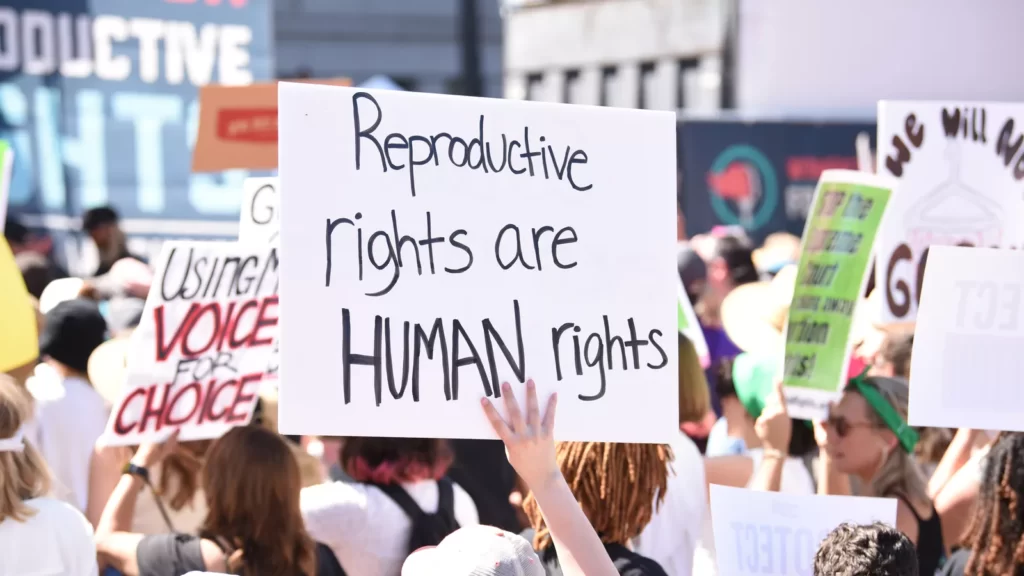As the Supreme Court seems poised to overturn Roe v. Wade, Native American women are sounding the alarm about how it would disproportionately endanger their lives.
Why it matters: Advocates fear overturning Roe would lead to a flood of unsafe abortions, health problems and deaths for Native American women, who suffer some of the highest rates of sexual violence in the U.S. and are two times more likely to die from pregnancy-related complications than white women.
Context: The vast majority of Native Americans receive health care through the federal Indian Health Service per treaty agreements, but the Hyde Amendment prohibits the use of federal funding for abortions except in cases of rape, incest or when a pregnant person’s life is threatened.
- The risk of rape or sexual assault is 2.5 times higher for Native women compared to the rest of the U.S., according to the Urban Indian Health Institute. A 2018 study found that one in two Native women will be victims of sexual violence in their lifetime.
- Some states have recently enacted abortion bans that do not allow exceptions for rape or incest. “Now that they are denying these services, Indigenous women are out again. There’s nowhere to turn,” said Lauren van Schilfgaarde, a member of the Cochiti Pueblo, who serves as director of UCLA Law School’s tribal legal development clinic.
State of play: The nonprofit Indigenous Women Rising saw a surge in abortion-related requests for funding after Texas’ abortion ban took effect in September.
- Co-founder Nicole Martin, who is Laguna and Diné, said the leaked ruling has only heightened the increase in “frantic and panicked callers.”
- Most need money to cover transportation, child care and hotel costs while traveling out of state. Native American women make roughly $0.60 to the dollar of white men as of 2019, according to the Institute for Women’s Policy Research.
- With high maternal mortality rates among Native Americans, many also worry that bans similar to Texas’ will hurt doctors’ abilities to treat people who suffer miscarriages.
What they’re saying: Without Roe, the U.S. would see disparities widen when it comes to maternal mortality, poverty and mental health issues — especially among Indigenous folks who are forced to carry pregnancies after being raped, said Abigail Echo-Hawk, a member of the Pawnee Nation and the chief research officer of the Seattle Indian Health Board.
- “This is going to impact detrimentally the current crisis of missing and murdered Indigenous women and girls,” she added, pointing to the role abortion plays for survivors.
- Some anti-abortion Indigenous women have argued that the procedure hurts “unborn Native Americans” who are among the most vulnerable in the U.S., but Echo-Hawk rejected that line of thinking.
- “It is our responsibility to carry on the future for the next generations, and that includes being able to make autonomous choices on when we birth and when we don’t.”
Reproductive autonomy is especially important for Native Americans, who are still suffering in the aftermath of mass forced sterilizations in the 20th century, Martin said.
- “The possibility of Roe being overturned is another tool of conquest,” she said. “That’s what colonizers knew worked best: Eliminate women and you eliminate the community.”
- “We shouldn’t have to plan for creating abortion funds to get women into specific states to ensure that they can get safe and legal abortions … And we shouldn’t have been and shouldn’t have to be dependent on states but we know the federal government isn’t going to uphold our right and so we’re going to have to do whatever it takes,” Echo-Hawk added.

Source: axios.com

